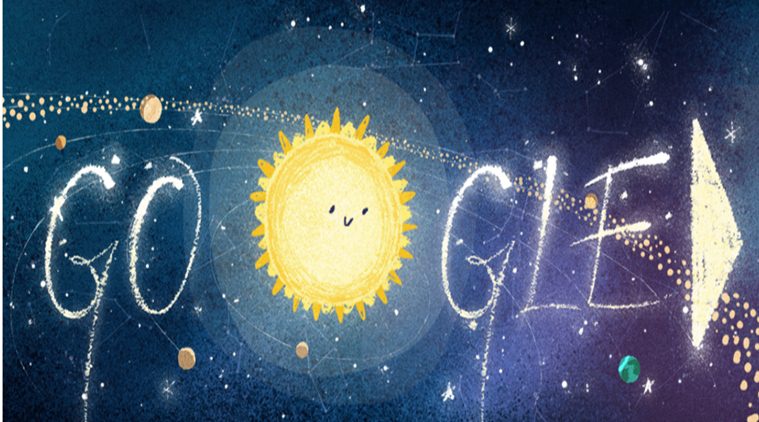
Geminid Meteor Says Goodbye to 2018: Google Doodle Reveals the Story Behind the Unusual Glow in the Sky

Google Doodle marked the importance of the spectacular meteor shower which happens every year this Thursday. The rare occurrence will happen again on 13th December night. The Geminid will appear again as it has done in the past. It is brought to earth by the Phaethon asteroid which is a satellite discovered more than three and a half decades ago. The asteroid got its name from the Greek Apollo’s son. It follows 3200 Phaethon’s orbit and it comes closer to the earth’s atmosphere than that of the mercury. The yellowish light rays seen from the meteors have only become brighter over the years since 1800.
‘Rock comet’ came close to the earth, being only 6.4 miles away, in 2017. On the same year, the supermoon phenomenon drew people’s attention which made it difficult to realize the astrological significance of the rock comet. If the atmosphere remains clear, this can be another year to catch the Geminide’s show. The meteors get its name from Gemini which is believed to be the group where it belongs.
You don’t need a telescope or binoculars to watch the Geminid meteors show tonight. The debris from Phaethon’s orbit will be visible as from 9 pm and becoming more towards midnight with as many as 120 meteors passing per hour. The comic dust may come from the collision with another flying object but this poses no danger to earth’s inhabitants as Geminids always disintegrate in the atmosphere before landing on the earth surface.
You can watch the video of Geminid Meteor Shower from here:
Tonight’s Google Doodle will follow the Geminids orbit as it passes through the atmosphere and lighting up the sky at the same time. As it approaches the sun through the Phaethon’s orbit, the heat from the sun causes it to crack and leaves behind a trail of loose particles along its orbital path. Earth’s orbit takes us to a trail of 3200 Phaethon and its particles get into the earth’s atmosphere at a speed of 79,000 miles (127,000 km) per hour every December. Once it has passed through the earth, where the Geminids originate is termed as the constellation Gemini.
To catch the whole show and have the best experience, you need to get as far away as possible from the street lights and face southwards. Also, remember to dress warmly as it might be cold out there tonight. Enjoy the best of the show!